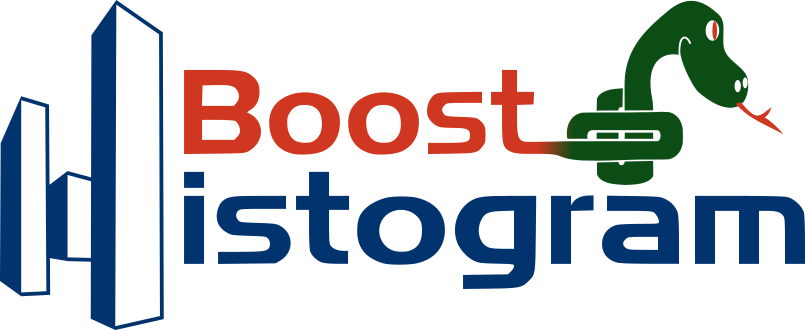
I’ve just released [boost-histogram 1.7][] and [hist 2.10][], with a major new feature and a big typing improvement! I’d like to quickly outline what’s new here. Python 3.10+ is now required.
[Read More]C++ 11 14 17 20 23 • macOS (AS) / Windows Setup • Azure DevOps (Python Wheels) • Conda-Forge ROOT • CLI11 • GooFit • cibuildwheel • Hist • Python Bindings • Python 2→3 3.7 3.8 3.9 3.10 3.11 3.12 3.13 3.14 • SSH
Modern CMake • CompClass • se-for-sci
CMake Workshop • Python CPU, GPU, Compiled minicourses • Level Up Your Python • Packaging
pybind11 (python_example, cmake_example, scikit_build_example) • cibuildwheel • build • packaging • pipx • dependency-groups • pyproject-metadata • nox • scikit-build (core, cmake, ninja, moderncmakedomain) • meson-python • boost-histogram • Hist • UHI • Vector • GooFit • Particle • DecayLanguage • Conda-Forge ROOT • uproot-browser • Scientific-Python/cookie • repo-review • validate-pyproject(-schema-store) • flake8-errmsg • check-sdist • pytest GHA annotate-failures • Plumbum
CLI11 • beautifulhugo • Jekyll-Indico • POVM • hypernewsviewer • AoC 2023 • AoC 2024
Scientific-Python Development Guide • IRIS-HEP • Scikit-HEP • CLARIPHY

I’ve just released [boost-histogram 1.7][] and [hist 2.10][], with a major new feature and a big typing improvement! I’d like to quickly outline what’s new here. Python 3.10+ is now required.
[Read More]Along with a pip (and now packaging) maintainer, Damian Shaw, I have
been working on making packaging, the library behind almost all packaging
related tools, faster at reading versions and specifiers, something tools like
pip have to do thousands of times during resolution. Using Python 3.15’s new
statistical profiler and metadata from every package ever uploaded to PyPI, I
measured and improved core Packaging constructs while keeping the code readable
and simple. Reading in Versions can be up to 2x faster and SpecifierSets can
be up to 3x faster in packaging 26.0, now released! Other
operations have been optimized, as well, up to 5x in some cases. See the
announcement and release notes too; this post will focus on the
performance work only.
After two years of Advent of Code in Rust, I thought I’d try TypeScript. I’ve always wanted to improve repo-review’s webapp, and that requires knowledge of the packaging systems for JavaScript, so I thought I’d try TypeScript this year. I also used this as an opportunity to learn more AI tooling too, mostly CoPilot in VSCode & ChatGPT. I’d like to share my experience and thoughts! My code is at aoc2025 (and aoc2024, aoc2023).
[Read More]UHI 1.0 is out, with a major new feature: a new histogram serialization spec! This spec supports multiple formats (HDF5, zip, and JSON initially), and can be supported by multiple libraries (Boost-histogram/hist initially). There’s also a new test suite helper for libraries targeting the UHI indexing spec.
[Read More]
Pybind11 3.0 has been released! I would like to highlight some of the key
changes below; be sure to check out the changelog and upgrade guide for
more information! This release includes an ABI bump, the first required bump in
many years on Unix (Windows has had required bumps more often). This release
contains the multi-year smart-holder branch, multi-phase init and subinterpreter
support, py::native_enum, an interface to warnings, typing improvements, and
more. CMake now defaults to FindPython mode.
Support for Python 3.14, 3.14t, GraalPy, PyPy 3.11, and iOS have been added, while legacy support for Python 3.7, PyPy 3.8/3.9, and CMake <3.15 has been removed. Most deprecated features have been kept for this release, but anything producing a warning in 3.0 may be removed in a future 3.x version.
[Read More]cibuildwheel 3.0.0 is out, with some very big additions. We’ve added
GraalPy, Python 3.14 (and 3.14t) betas, and iOS support! We’ve got several new
options: test-sources, test-environment, and (experimental)
pyodide-version. We now fully use enable (and PyPy requires using it), and
we no longer inject setuptools and wheel in build environments. Defaults have
changed, too: build is now the default frontend, manylinux_2_28 is the
default manylinux image, with 32-bit linux now being opt-in. We’ve removed
support for Python 3.6 and 3.7, we now require 3.11+ to run cibuildwheel itself,
and EoL manylinux/musllinux images now need to be fully specified.
We’ve had some fantastic releases of cibuildwheel since my last post over 2.19, so I’ll include a few of the new features from those releases, too. I’ll also note a few of the features being worked on for future releases.
[Read More]